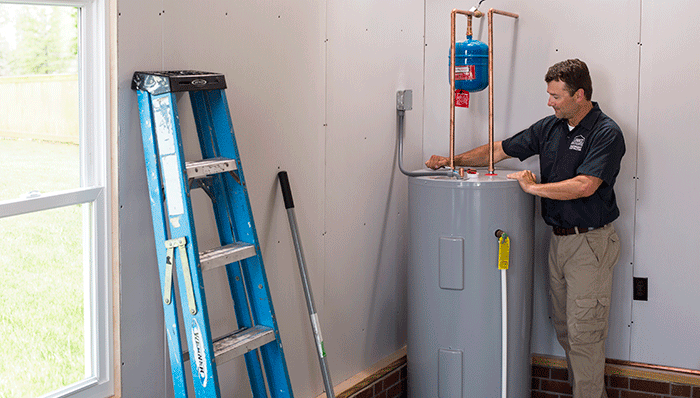
Image Source: Google
When it comes to upgrading your home, one often overlooked aspect is the water heater. A water heater is an essential appliance that provides hot water for your showers, dishes, and laundry. Over time, water heaters can become less efficient or stop working altogether, leading to cold showers and increased energy bills.
The first step in replacing your water heater replacement is to determine the type of water heater you currently have. There are two main types of water heaters: traditional tank water heaters and tankless water heaters. Traditional tank water heaters store and heat water in a large tank, while tankless water heaters heat water on demand as it passes through the unit.
Once you have determined the type of water heater you currently have, you will need to consider the size and capacity of the new water heater. The size of the water heater you need will depend on the number of people in your household and your hot water usage.
A general rule of thumb is that a 30-40 gallon water heater is sufficient for a household of 1-4 people, while a 50-80 gallon water heater is better suited for a household of 5 or more people.
After determining the type and size of water heater you need, the next step is to choose the fuel source. Water heaters can be powered by electricity, natural gas, or propane. The most common fuel sources for water heaters are natural gas and electricity. Natural gas water heaters are typically more energy-efficient and cost-effective than electric water heaters, but they require access to a gas line.
Once you have chosen the type, size, and fuel source of your new water heater, the next step is to consider the energy efficiency rating. Energy-efficient water heaters can help you save money on your utility bills and reduce your carbon footprint. Look for water heaters with a high energy efficiency rating, such as Energy Star certified models.
After you have selected the new water heater for your home, the next step is to prepare for installation. Installation of a water heater can be a complex and potentially dangerous process, so it is recommended to hire a professional plumber to install the new water heater for you. A licensed plumber will ensure that the installation is done correctly and safely, and they will also be able to dispose of your old water heater properly.
Once your new water heater is installed, it is important to perform regular maintenance to ensure it continues to function properly. Regular maintenance tasks for water heaters include flushing the tank to remove sediment buildup, checking for leaks or rust, and adjusting the temperature settings.
In conclusion, upgrading your home with a new water heater is a smart investment that can improve the comfort and efficiency of your household. By following this comprehensive guide to water heater replacement, you can choose the best option for your home and enjoy reliable hot water for years to come.
Remember to consider the type, size, fuel source, and energy efficiency rating of the new water heater, and always hire a professional plumber for installation. With proper maintenance, your new water heater will provide you with hot water whenever you need it, without breaking the bank.